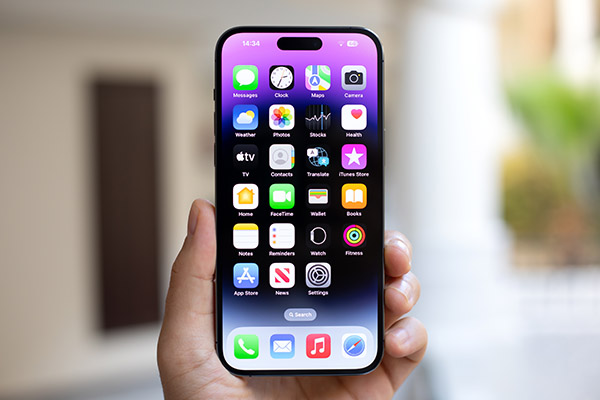In today’s digitally entangled world, technology has transformed how people connect, communicate, and conduct relationships. While it has facilitated intimacy and long-distance love, it has also opened doors to darker possibilities, one of which is the rising prevalence of cheating apps.
These applications, either designed to facilitate infidelity or repurposed to hide extramarital behavior, represent a growing concern in modern relationships. This article dives deep into what cheating apps are, how they work, the psychological and ethical implications, and what can be done to address their impact.
What Are Cheating Apps?
“Cheating apps” refer to digital platforms—often disguised as innocent tools—that enable users to engage in secretive or deceptive behavior, typically in romantic relationships. These apps may serve various functions:
- Encrypted or hidden messaging
- Temporary content that vanishes after viewing
- Fake calculator or utility interfaces hiding private data
- Dating apps marketed for discreet encounters
Not all cheating apps are inherently nefarious. Some are privacy tools or communication platforms with legitimate uses. However, their misuse in romantic deception earns them the controversial label.
Examples of Commonly Used Cheating Apps
- Snapchat – Messages disappear after being viewed.
- Telegram – Encrypted chats and self-destructing messages.
- Vault – Hides photos, videos, and messages behind a fake interface.
- Grindr/Tinder/Ashley Madison – Dating apps often used for clandestine affairs.
- WhatsApp/Signal – Secure messaging, often locked with biometrics.
- Calculator% – An app disguised as a calculator that hides media and contacts.
While not all these apps were created for infidelity, they are commonly exploited for that purpose due to their privacy features.
Technology and the Erosion of Trust
Technology is neutral by design—it amplifies the intent of its user. In relationships, however, it can become a double-edged sword. On one hand, couples can stay connected through distance. On the other, it enables easy access to temptation and anonymity.
Why Do People Use Cheating Apps?
Several reasons explain the surge in their use:
- Convenience and Accessibility: It’s easier than ever to meet new people and communicate secretly.
- Emotional Disconnection: A lack of intimacy or communication in a relationship may push individuals to seek comfort elsewhere.
- Thrill and Novelty: Some individuals are addicted to the adrenaline rush of secrecy and the excitement of the forbidden.
- Perceived Anonymity: Many users believe their actions are untraceable, emboldening risky behavior.
Apps designed with privacy as a core feature naturally attract users looking to hide something—whether it’s a surprise party or a secret relationship.
Impact on Relationships
The use of cheating apps can have devastating effects on relationships. It undermines trust, often leading to emotional trauma, psychological distress, and in some cases, divorce or separation.
Signs Your Partner Might Be Using a Cheating App
- Sudden over-protection of their phone
- Unusual behavior or frequent mood swings
- Using apps you’ve never seen before, especially hidden under utility icons
- Deleting messages or browsing history regularly
- Increased privacy or secrecy around online activity
While these signs don’t guarantee cheating, they are often red flags that deserve open communication, not immediate confrontation.
The Ethics of Privacy vs. Transparency
One of the major debates surrounding cheating apps is the boundary between privacy and secrecy. Everyone is entitled to a degree of personal privacy, even in committed relationships. However, secrecy—especially when it involves hiding communication with others in a romantic or intimate context—becomes ethically murky.
Is using a secure messaging app inherently wrong? No. Is using it to hide flirtatious or sexual exchanges with another person? That becomes a betrayal of trust.
Cultural and Societal Drivers
Cheating has existed long before smartphones. But what has changed is the ease, normalization, and speed with which digital tools enable it.
Mainstream Media and Glorification
TV shows, movies, and even influencers sometimes glamorize extramarital affairs, portraying them as exciting or emotionally liberating. Apps like Ashley Madison—marketed specifically for discreet affairs—cater to this ideology. Their tagline, “Life is short. Have an affair,” says it all.
Changing Definitions of Infidelity
In a world of digital communication, the boundaries of what constitutes cheating are increasingly blurred. Is sexting cheating? Is emotional intimacy via texts a betrayal? What about VR relationships or AI companions?
For many couples, these are uncharted waters, and expectations differ greatly. Without clear boundaries, digital flirtation can become a slippery slope.
Legal and Security Concerns
Cheating apps can also bring legal and security risks, including:
- Data Breaches: Platforms like Ashley Madison have experienced data leaks, exposing thousands of users.
- Blackmail or Extortion: Sensitive conversations and media stored on these apps can become tools for blackmail.
- Malware Risks: Many “private” apps are not vetted and may compromise user data.
Solutions and Prevention
Tackling the problem of cheating apps requires a multifaceted approach:
1. Communication and Boundaries
The most effective deterrent to digital infidelity is open communication. Couples should clearly define what they consider inappropriate and mutually agree on digital boundaries.
2. Tech Literacy and Awareness
Being aware of the tools that exist is crucial. This doesn’t mean spying or becoming paranoid, but understanding how some apps work can help you spot suspicious behavior.
3. Therapy and Counseling
Relationship counseling—whether through traditional therapy or digital platforms—can help couples address emotional disconnection before it leads to betrayal.
4. Parental Controls and Monitoring Tools
For younger audiences or those concerned about family safety, tools like screen-time monitoring, app usage alerts, and parental controls can mitigate misuse.
5. Personal Accountability
Ultimately, no app can “make” someone cheat. People who are unfaithful choose to be. Technology may facilitate betrayal, but the core issue lies in personal values and relationship dynamics.
Conclusion: A Digital Mirror of Human Behavior
Cheating apps don’t create infidelity—they merely reflect it. Like a mirror, they show what already exists beneath the surface: trust issues, emotional disconnection, or a desire for secrecy.
In this sense, they are not a technological problem, but a human one.
For individuals in relationships, the rise of these apps is a wake-up call to prioritize transparency, honest communication, and mutual respect. For developers and tech companies, it’s a reminder that privacy should not come at the cost of integrity.




